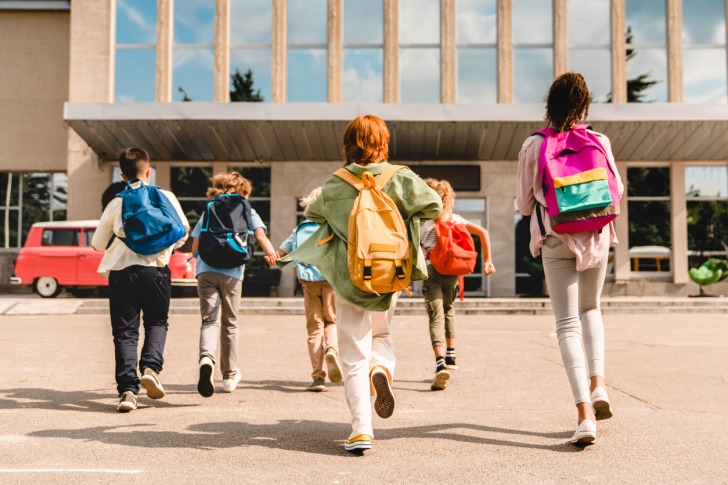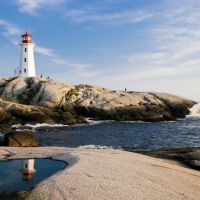Are you planning an educational trip but don’t know where to start?
Choosing the right destination is crucial for a fulfilling and enriching experience.
In this article, we will guide you through the process of selecting the best destination for your educational travel experience.
Contents
- Why is Destination Selection Important for Educational Travel?
- How to Successfully Choose Your Travel Destination
- Determine Your Learning Goals
- Consider Your Budget
- Research the Destination’s Culture
- Check Visa Requirements
- Safety and Security Considerations
- Season and Weather
- Language Barriers
- Transportation and Infrastructure
- Accommodation Options
- Food and Dining
- Activities and Attractions
- Educational Resources and Institutions
- Local Guides and Tour Operators
- Feedback and Reviews
- How to Maximize Your Travel Experience
- Conclusion
- Frequently Asked Questions
Why is Destination Selection Important for Educational Travel?
Choosing the right destination for your educational travel experience can make or break your trip.
A poorly chosen destination can lead to frustration, boredom, or even danger, while the right one can provide a wealth of knowledge, cultural experiences, and personal growth.
Therefore, it’s crucial to take the time to research and analyze potential destinations before making a final decision.
How to Successfully Choose Your Travel Destination
Determine Your Learning Goals
Before choosing a destination, you need to determine your learning goals.
What do you hope to learn from your trip?
Do you want to improve your language skills, learn about history, or immerse yourself in a different culture?
Once you identify your learning goals, you can start looking for destinations that offer the best opportunities to achieve them.
If writing is an important part of your learning goals, there are many great resources available online to assist you.
https://typemyessay.me/ offers professional writing services to help students improve their skills in any subject area.
Consider Your Budget
Your budget will also play a significant role in determining your destination.
Some countries and cities are more expensive than others, and the cost of living can vary widely.
Consider the costs of transportation, accommodation, food, and activities, and ensure that your budget is sufficient to cover all your expenses.
Research the Destination’s Culture
To fully immerse yourself in a new culture, you need to research it before you arrive.
Learn about the country’s history, customs, traditions, and social norms.
Understanding the local culture will help you avoid misunderstandings, cultural faux pas, or even unintentional insults.
Check Visa Requirements
Depending on your destination, you may need a visa to enter the country.
Visa requirements can vary widely, so it’s important to check the latest information from the country’s embassy or consulate.
Some countries also require additional documentation, such as travel insurance or proof of vaccinations.
Safety and Security Considerations
Safety and security should always be a top priority when choosing a destination.
Research the local crime rate, political situation, and natural hazards such as weather, earthquakes, or other natural disasters.
It’s also important to register with your embassy or consulate and keep them informed of your travel plans.
Season and Weather
The season and weather can have a significant impact on your travel experience.
Consider the average temperature, rainfall, and other weather conditions when choosing a destination.
Some activities or attractions may be closed or limited during certain seasons, so plan accordingly.
Language Barriers
Language barriers can be a significant challenge for travelers.
If you don’t speak the local language, you may need to hire a translator or rely on English-speaking guides or tour operators.
Consider the language requirements of your learning goals and choose a destination where you can communicate effectively.
Transportation and Infrastructure
Transportation and infrastructure can also affect your travel experience.
Consider the availability and cost of public transportation, as well as the quality of roads and highways.
If you plan to rent a car, ensure that you have the necessary documentation and insurance.
Accommodation Options
The type and quality of accommodation can significantly affect your travel experience.
Research the different types of accommodation available, such as hotels, hostels, homestays, or vacation rentals.
Consider factors such as cost, location, cleanliness, and amenities when choosing your accommodation.
Food and Dining
Food is an essential part of the travel experience, and trying local cuisine can be an excellent way to immerse yourself in a new culture.
Research the local cuisine and dining options, including street food, local markets, and restaurants.
Consider any dietary restrictions or food allergies you may have and plan accordingly.
Activities and Attractions
The activities and attractions available at your destination can greatly enhance your travel experience.
Research the different options available, such as museums, historical sites, cultural events, outdoor activities, and tours.
Consider your learning goals and personal interests when choosing your activities.
Educational Resources and Institutions
If your learning goals involve formal education, you may want to consider destinations with reputable educational institutions or programs.
Research the availability and quality of educational resources, such as language schools, universities, or cultural exchange programs.
Consider any prerequisites or qualifications required for enrollment.
One option is to search online and explore the offerings of https://onlinecollegewriting.com/.
This website offers a wide variety of writing services, including but not limited to college essay help, dissertation writing, and thesis writing.
With the help of experienced professionals, you can find answers to any questions you may have while completing assignments or preparing for exams.
Local Guides and Tour Operators
A knowledgeable and experienced guide or tour operator can greatly enhance your travel experience by providing insights and context to the local culture and history.
Research local guides or tour operators and read reviews or testimonials from previous clients.
Consider any specialized or customized tours that may be available.
Feedback and Reviews
Before making a final decision, it’s essential to read feedback and reviews from other travelers who have visited the destination.
Look for reviews on travel websites, social media, or forums.
Consider both positive and negative feedback and use it to make an informed decision.
How to Maximize Your Travel Experience
- Choose unexpected destinations. Consider visiting lesser-known destinations that offer unique and authentic experiences.
- Do your homework and get organized. Research your destination to find out about local customs, attractions, and events, and plan your itinerary accordingly. With https://dohomeworkfor.me/, you can easily search for writing services to help you stay on top of your workload and plan ahead for any upcoming project or task.
- Get lost! Don’t be afraid to wander and explore, but be sure to stay safe and aware of your surroundings.
- Early birds get the worm. Try to start your day early to avoid crowds and enjoy popular attractions before they get too busy.
- Embrace local culture. Be respectful of local customs and traditions, and be open to trying new experiences.
- Try local cuisine. Food is an integral part of culture, so be sure to sample local dishes and delicacies.
- Learn the local language. Even basic phrases can help you connect with locals and navigate your surroundings.
- Start a travel journal. Recording your experiences and memories can help you reflect on your travels and preserve them for years to come.
Conclusion
Choosing the best destination for your educational travel experience requires careful consideration of multiple factors, including your learning goals, budget, culture, safety, language barriers, accommodation, food, activities, educational resources, and feedback from other travelers.
By taking the time to research and analyze your options, you can ensure a fulfilling and enriching travel experience.
Frequently Asked Questions
What is educational travel?
Educational travel involves visiting a destination for the purpose of learning about its culture, history, language, or other educational aspects.
What are the benefits of educational travel?
Educational travel can provide opportunities for personal growth, cultural immersion, language acquisition, and academic or professional development.
How can I determine my learning goals for educational travel?
Consider your personal interests, academic or professional goals, language skills, and cultural awareness when determining your learning goals for educational travel.
How can I ensure my safety and security during educational travel?
Research the destination’s crime rate, political situation, and natural hazards, register with your embassy or consulate, and keep them informed of your travel plans.
Where can I find reputable educational resources and institutions for educational travel?
Research local language schools, universities, or cultural exchange programs, and consider any prerequisites or qualifications required for enrollment.











